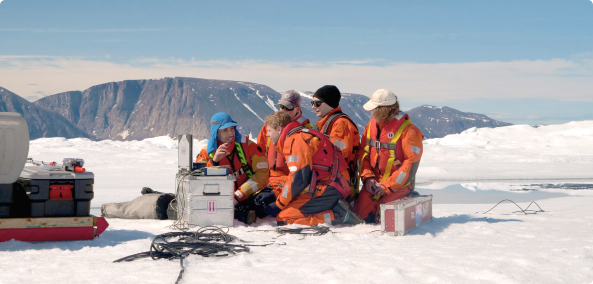During an official ceremony that took place on April 1st, 2010, Mrs. Sabine Laruelle, Belgian Federal Minister for Science Policy, and Alain Hubert, President of the International Polar Foundation, signed a partnership protocol between the IPF and the Belgian State. The protocol, besides marking the donation of the Princess Elisabeth research station to the Belgian State, defines the International Polar Foundation as the Antarctic Operator within the Belgian Polar Secretariat and the rightful owner of the intellectual property rights as the author of Princess Elisabeth Antarctica.

















